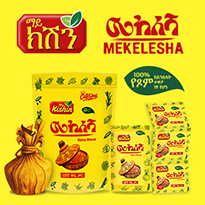 Ethiopia exported more than 11 million pieces of flower in connection with Valentine’s Day, a day celebrated on February 14 every year, Walta Information Center reported.
Ethiopia exported more than 11 million pieces of flower in connection with Valentine’s Day, a day celebrated on February 14 every year, Walta Information Center reported.
Ethiopia earned an amount of 18 million US dollars in connection with the same day last year on exports made to Europe, North America, Middle East and Far East countries.
According to a report by Anadolu Agency in December 2015, Ethiopia is said to be the second-largest flower exporter in Africa after Kenya, with over 100 flower growers on 1,700 hectares. Ethiopia garnered USD 250 million from horticulture export in 2014. Flower growers in Ethiopia are entitled to the following privileges; a five-year tax holiday, duty free imports, access to bank loans and farm lands as well as a 100 percent exemption from payment of export customs duties.
Source: Walta Information Center, Anadolu Agency
Ethiopia is said to be the second-largest flower exporter in Africa after Kenya, with over 100 flower growers on 1,700 hectares, Anadolu Agency reported.
Berhanu Ludamo, Promotion and Information Service Head of Ethiopian Horticulture Producers Exporters Association told Anadolu Agency that Ethiopia would soon assume Kenya’s position to become the leading flower exporter in Africa.
Experts told Anadolu Agency on Friday, December, 11, 2015, that the Ethiopian flower industry is flourishing, with the help of the government incentives and low labor cost.
Berhanu noted Ethiopia garnered USD 250 million from horticulture export in 2014. The revenue is expected to rise the current year as a result of expansion of horticulture farms. He added the country is going to grow 3,000 in the coming five years to garner revenue of USD 550 million from export.
Ethiopia’s climate is a major competitive advantage for floriculture sector, Shiferaw Mitiku, a researcher and agricultural marketing consultant in Addis Ababa said.
Flower growers in Ethiopia are entitled to the following privileges; a five-year tax holiday, duty free imports, access to bank loans and farm lands as well as a 100 percent exemption from payment of export customs duties, according to Ethiopian Investment code 2001.



